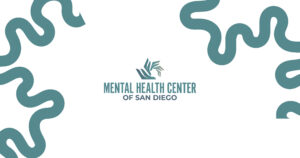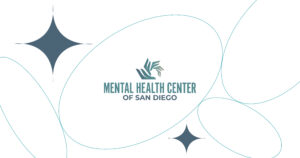
Unfortunately, we do not have to look far to find someone affected by suicide or a mental health crisis. Suicide is the second leading cause of death for adults in the United States, and the third leading cause of death for adolescents. According to the National Alliance on Mental Illness, one in every five youth, aged 13 to 18 has a severe mental health condition at some point in their lives. This equates to 21.4% of the youth population. Suicide is a serious concern for people with mental health issues.
One of the most common comments we hear at our children’s psychiatric hospitals is that the families and friends of those admitted were unaware their loved one was in crisis. People rarely plan for a mental health crisis, and they may miss the warning signs. Here are some tips for recognizing a mental health crisis and assisting a loved one in seeking help.
What is a Mental Health Crisis?
Stress at home, such as conflicts with loved ones, exposure to trauma, or violence, can all lead to a mental health crisis. Workplace or school stress, as well as other environmental stressors, can all contribute to a mental health crisis.
Individuals with diagnosed mental illnesses are more likely to experience a crisis, but all too often, a crisis occurs before a mental illness is diagnosed.
Mental Health Center of San Diego
Signs of a Mental Health Crisis
A mental health crisis can manifest itself in a variety of ways. There is no single indicator that a person is having a mental health crisis or is contemplating suicide, but here are some warning signs. The person may be:
- Unable to complete daily tasks such as dressing, brushing teeth, bathing, and so on.
- Verbally expressing, writing, or implying a desire to commit suicide and/or discussing death
- Withdrawal from friends, family, and normal social situations
- Being impulsive, reckless, or aggressive
- Having drastic changes in mood, sleeping, or eating habits
Mental Health Center of San Diego
Being Prepared for a Mental Health Crisis
According to the National Alliance on Mental Illness, anticipating a mental health crisis and sharing that plan with a loved one can help you avoid one. When you suspect a crisis, you must decide who to contact for assistance. If the person is an immediate danger to themselves or others, call 911 and inform them that you are with someone experiencing a mental health crisis. If the individual is not in immediate danger, you can contact their therapist, doctor, or psychiatrist, if they have one. They will be able to offer advice and assistance with crisis services. You can also seek help from a local mental health center or emergency room.
There are also de-escalation techniques, such as keeping your voice calm, listening to the person, moving slowly, and avoiding making judgmental comments. Here are some topics to discuss and information to gather in order to create a preparedness plan:
- Know where to go for assistance. It could be a community mental health center, an emergency room, or a psychiatric treatment center. The National Suicide Prevention Lifeline is also available 24 hours a day, 7 days a week at 1-800-273-TALK (8255).
- Identify family members and friends who can assist and support the person in crisis.
- Gather the phone numbers and names of the patient’s primary care physician, psychiatrist, therapist, and other healthcare providers.
- Make a list of your loved one’s medications and diagnoses.
- Make a list of emotional and verbal triggers that affect your loved one.
- Share any drug and/or alcohol use history you are aware of, as well as any history of psychosis or suicide attempts.
- Consider things that have previously helped to stabilize and regulate the person.
- Remove weapons, unprescribed medications, and items that can pose a risk to their lives.
Do not try to handle the situation on your own. If you know someone who is depressed or thinking about self-harm, call the Mental Health Center of San Diego at +1 (858) 258-9883 or the National Suicide Prevention Lifeline at 1-800-273-TALK (8255).








